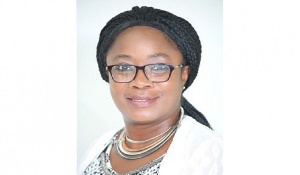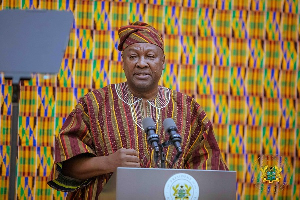The Ministry of Gender, Children and Social Protection (MoGCSP) on Wednesday, launched a document containing guidelines for the provision of quality essential services for women and girls who have experienced violence.
Ms Mialonin Asibi, the Executive Secretary of the Domestic Violence Secretariat of the Gender Ministry, who launched the document at a workshop in Accra, said it was aimed at providing greater access to a coordinated set of essential and quality multi-sectoral services for all women and girls who have experienced Gender Based Violence (GBV).
She said the Package was a practical tool for countries, setting out a clear roadmap on how to ensure the provision and coordination of quality services of all sectors, and also supporting them as they worked to design, implement and review services for all victims and survivors of violence in a broad range of settings and situations.
Violence against women and girls, she said was a global pandemic and an obstacle to reaching equality, saying that, one in every three women worldwide had experienced physical or sexual violence (30 per cent of women ), according to a WHO study, with sub-Sharan Africa showing a statistic of 37.0 per cent of this problem.
Ms Asibi said although GBV, as well as domestic violence directly and indirectly cut across a wide range of institutions globally, access to essential services, remained limited or non-existent, while the absence of solid data made it difficult for the design of effective support systems to address the issues.
The “Essential Services Package,” comprises five overlapping modules made up of the Overview and Introduction; Health Essential Services; Justice and Policing Essential Services; Essential Social Services; and Essential Actions for Coordination and Governance of Coordination, she said.
She said it was believed that these set of coordinated actions could significantly mitigate the consequences that violence had on the well-being, health and safety of women and girls, assist in the recovery and empowerment of these group, and stop the perpetration of such crime against them.
Again, the provision of essential services could diminish the losses experienced by women, families and communities in terms of productivity, school achievement, public policies and budget, and help break the or recurrent cycle of violence, and further play a key role in poverty reduction and development, as well as in efforts to achieve the Sustainable Development Goals (SDGs).
Ms Erika Goldson, the Deputy Country Representative of the United Nations Population Fund (UNFPA), said Ghana was privileged to host the launch of the document with the support of her outfit’s West and Central Africa Regional Office, saying the SDG’s explicitly targets the end of discrimination and elimination of all forms of violence and harmful practices against all women and girls.
She, however, noted that, despite all the efforts and commitments being made, such provisions remained pervasive in societies and at country levels, saying this was a serious form of discrimination.
“Discrimination and different forms of violence against women and girls, including sexual violence and harmful practices, continue to severely affect women’s enjoyment of human rights, in particular, their sexual and reproductive health rights,” she said.
Ms Goldson mentioned some of the support services needed, a shelter for victims of GBV and trafficking, trauma and counselling services, access to sexual and reproductive health services, emergency medical care, and swift justice system for issues of such violence, adding that, these services would not provide immediate support and recovery, but would also help to stop the impunity.
She thanked all the stakeholders and bilateral partners, who contributed to the development of the document, and said the UNFPA was looking forward to the development of a plan of actions for a coordinated multi-sectoral prevention and response to sexual and gender-based violence, and the strengthening of the capacity of key sector professionals and UN agencies staff for better outcomes.
She urged participants of the workshop who were from implementing agencies, Ministries and Departments of Gender, Civil Society Organisations and the media, to join their efforts in the implementation of the core elements and quality guidelines of the Essential Services Package to help ensure equal access, safeguard the human rights of women and girls as well as other vulnerable groups.
General News of Friday, 14 June 2019
Source: ghananewsagency.org













